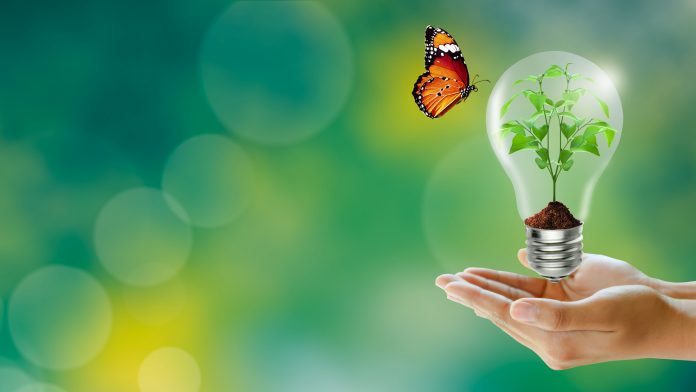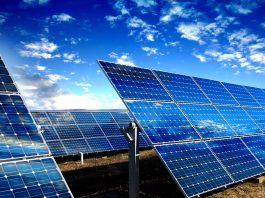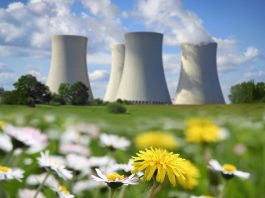The International Energy Agency is co-hosting a meeting this week – 12 to 13 July 2022 – at the Sydney Energy Forum, to discuss strengthening clean energy technology supply chains with global energy and climate leaders.
The International Energy Agency (IEA) and the Australian Government are co-hosting this meeting to determine how global energy and climate leaders can scale up and strengthen the supply chains for the clean energy technologies required for a secure and affordable transition to net zero emissions.
Australia’s Prime Minister, Anthony Albanese, launched the event with top leaders from industry, finance, and other high-level participants present. This included IEA Executive Director Fatih Birol; Australian Minister for Climate Change and Energy Chris Bowen; US Secretary of Energy Jennifer M. Granholm; Japanese Minister of Economy, Trade, and Industry Koichi Hagiuda; Samoan Minister of Natural Resources and Environment Toeolesulusulu Cedric Schuster; Indian Minister of Power, New and Renewable Energy Raj Kumar Singh; and Indonesian Minister of Energy and Mineral Resources Arifin Tasrif.
The significance of international dialogue in reducing greenhouse gas emissions
The discussions taking place at the Sydney Energy Forum emphasise the significance of international dialogue, cooperation for achieving energy security and climate goals, and the central role of the IEA within these endeavours. Governments worldwide are attempting to reduce greenhouse gas emissions to assure the plausibility of achieving net zero emissions, as well as limiting the worst impacts of climate change. Thus, it is intended for this to redefine global energy security to include the supply of the minerals, materials and manufacturing capacity required to deliver clean energy technologies.
Additional pressure has been unloaded on these supply chains due to Covid-related lockdowns as well as Russia’s invasion of Ukraine. This has resulted in supply disruptions and soaring prices, which have impacted a wide range of critical commodities. Therefore, this turmoil threatens the pace of clean energy transitions, by potentially hindering the production of electric vehicles (EVs) or the deployment of renewables. This emphasises the astute action required from governments in order to counter these challenges.
“To durably address the challenges we are facing from today’s global energy crisis, we require an immediate and massive expansion of clean energy technologies to build a resilient and affordable energy system,” explained Dr Birol. “Establishing secure and sustainable supply chains for these technologies is essential, so I am very pleased that decision-makers from around the world have come together for these discussions led by the Australian Government and the IEA to strengthen international action.”
Assessing current and future supply chain requirements for critical technologies
To validate the conversations taking place at the Sydney Energy Forum, the IEA has published a series of new studies, including a special report on solar PV global supply chains and an analysis of the global supply chains of EV batteries. In order to discuss the issues impacting different technologies, the IEA’s report amasses securing clean energy technology supply chains. This report assesses current and future supply chain requirements for important technologies, including solar PV, EV batteries, and low-emissions hydrogen. Thus, this provides a framework for governments and industries to identify, assess and respond to emerging opportunities and vulnerabilities.
The report is considered a precursor to the 2023 edition of an IEA publication known as: Energy Technology Perspectives. This will present a detailed analysis of what is required to both develop and expand a range of clean energy technology supply chains to achieve net zero emissions.
When considering the IEA’s expanding role in this area, IEA member governments mandated the agency in March to consider the necessary steps to improve the security of global supplies of the critical minerals required for clean energy transitions, making this a major expanding area of work.
The five pillars for government and industry action
The IEA’s Securing Clean Energy Technology Supply Chains report includes particular perceptions for the Indo-Pacific region, which is home to many major raw material producers, such as Australia for lithium, and Indonesia for nickel. Additionally, the IEA has identified five pillars for governments and industrial action: diversify, accelerate, innovate, collaborate, and invest.
Furthermore, the report recommends enhancing the efficiency and speed of both permitting and approving clean energy projects, as well as critical mineral production, while maintaining high environmental and labour standards. The IEA has also highlighted the requirement for coordinated measures to bolster supply chain resilience, including consideration of stockpiles for critical minerals, which has been conducted for oil for half a century, and promoting robust recycling industries in order to reduce demand for raw materials.
Additionally, the report stated that in order to spawn technologies and manufacturing processes that rely on smaller quantities of critical materials, investment in research, development, and demonstration, needs to be prioritised. Additionally, training is required to ensure an appropriately skilled workforce across all clean energy technology supply chains.









